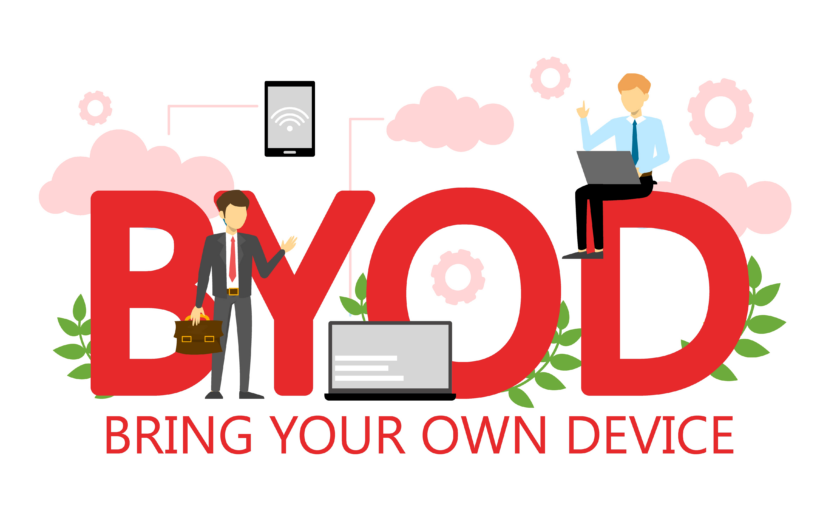The modern workplace is evolving at an unprecedented pace, with employees demanding greater flexibility and the ability to work from anywhere, anytime. This shift has led to the widespread adoption of Bring Your Own Device (BYOD) policies, where employees use their personal devices for work purposes. But with this convenience comes a critical need for robust BYOD management software to ensure data security, maintain employee privacy, and streamline IT operations.
BYOD, a practice gaining significant traction in the 2010s, allows employees to use personal devices like smartphones, laptops, and tablets for work tasks. This offers benefits like increased employee satisfaction and productivity, reduced hardware costs for companies, and improved employee mobility. However, it also introduces challenges such as data breaches, compliance issues, and increased IT workload. This is where BYOD management software comes in, providing a solution to mitigate these risks and enable a smooth BYOD experience.
What is BYOD Management Software?
Think of BYOD management software as a digital gatekeeper between your company’s sensitive data and the myriad of personal devices employees use. It allows IT administrators to secure, monitor, and manage corporate data and applications on employee-owned devices without infringing on their personal data and privacy.
Why is BYOD Management Software Essential?
Imagine this: an employee accidentally leaves their phone in a taxi, containing sensitive company data. Without BYOD management software, this could lead to a disastrous data breach. However, with the right software, IT can remotely wipe the corporate data from the device, preventing a potential crisis.
Here’s how BYOD management software benefits your organization:
- Enhanced Security: Protects company data with features like data encryption, access control, and remote wipe capabilities.
- Improved Productivity: Streamlines device onboarding, application deployment, and troubleshooting, allowing employees to focus on their tasks.
- Reduced IT workload: Automates many device management tasks, freeing up IT staff for more strategic initiatives.
- Simplified Compliance: Helps organizations comply with industry regulations like GDPR, HIPAA, and PCI DSS.
- Cost Savings: Reduces hardware expenses by leveraging employee-owned devices.
Key Features of BYOD Management Software
Not all BYOD management solutions are created equal. Look for these essential features:
- Mobile Device Management (MDM): Allows IT to control device settings, enforce security policies, and manage applications on enrolled devices.
- Mobile Application Management (MAM): Enables IT to deploy, update, and manage work-related applications on personal devices, ensuring they are secure and compliant.
- Containerization: Creates a separate, encrypted workspace on the device for corporate data and applications, isolating it from personal data.
- Identity and Access Management (IAM): Verifies user identity and controls access to company resources based on roles and permissions.
- Remote Wipe: Allows IT to remotely erase corporate data from a lost or stolen device.
Choosing the Right BYOD Management Software
Selecting the right BYOD management software is crucial. Consider factors like:
- Your company’s size and industry: A small business will have different needs than a large enterprise.
- The types of devices used by employees: Ensure the software supports various operating systems (iOS, Android, Windows).
- Your budget: BYOD management solutions come with varying pricing models.
- Integration with existing IT infrastructure: Choose a solution that seamlessly integrates with your current systems.
Implementing a Successful BYOD Policy
BYOD management software is only one piece of the puzzle. A comprehensive BYOD policy is essential for success. Here are some key considerations:
- Clearly define what devices are allowed.
- Establish security protocols and acceptable use guidelines.
- Outline employee responsibilities for device security.
- Communicate the policy clearly to all employees.
- Provide ongoing training and support.
In my previous role at a tech startup, we implemented a BYOD policy to empower our remote workforce. Initially, we faced challenges with securing company data on personal devices. However, after implementing a robust BYOD management solution and a clear policy, we saw a significant improvement in data security and employee satisfaction.
BYOD is not just a trend; it’s a transformative approach to work that’s here to stay. By embracing the right BYOD management software and strategies, organizations can reap the benefits of a flexible and productive work environment while safeguarding their valuable data.

